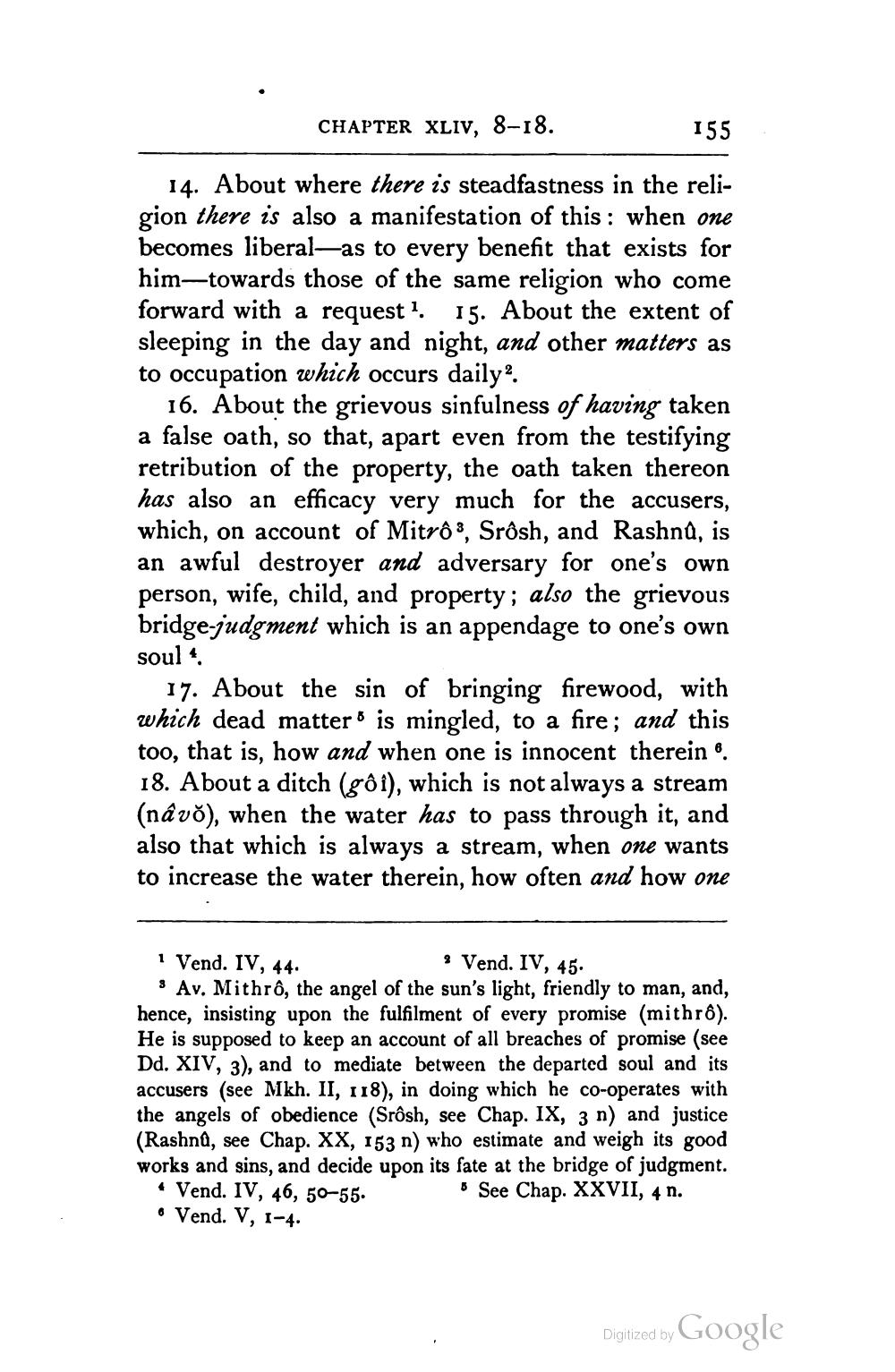________________
CHAPTER XLIV, 8-18.
155
14. About where there is steadfastness in the religion there is also a manifestation of this: when one becomes liberal—as to every benefit that exists for him—towards those of the same religion who come forward with a request I. 15. About the extent of sleeping in the day and night, and other matters as to occupation which occurs daily?
16. About the grievous sinfulness of having taken a false oath, so that, apart even from the testifying retribution of the property, the oath taken thereon has also an efficacy very much for the accusers, which, on account of Mitrô 3, Srôsh, and Rashna, is an awful destroyer and adversary for one's own person, wife, child, and property; also the grievous bridge-judgment which is an appendage to one's own soul 4
17. About the sin of bringing firewood, with which dead matter is mingled, to a fire; and this too, that is, how and when one is innocent therein 6. 18. About a ditch (gôi), which is not always a stream (nâvo), when the water has to pass through it, and also that which is always a stream, when one wants to increase the water therein, how often and how one
1 Vend. IV, 44.
i Vend. IV, 45. 8 Av. Mithrô, the angel of the sun's light, friendly to man, and, hence, insisting upon the fulfilment of every promise (mithro). He is supposed to keep an account of all breaches of promise (see Dd. XIV, 3), and to mediate between the departed soul and its accusers (see Mkh. II, 118), in doing which he co-operates with the angels of obedience (Srôsh, see Chap. IX, 3 n) and justice (Rashnù, see Chap. XX, 153 n) who estimate and weigh its good works and sins, and decide upon its fate at the bridge of judgment. • Vend. IV, 46, 50-55.
• See Chap. XXVII, 4 n. o Vend. V, 1-4.
Digitized by Google




